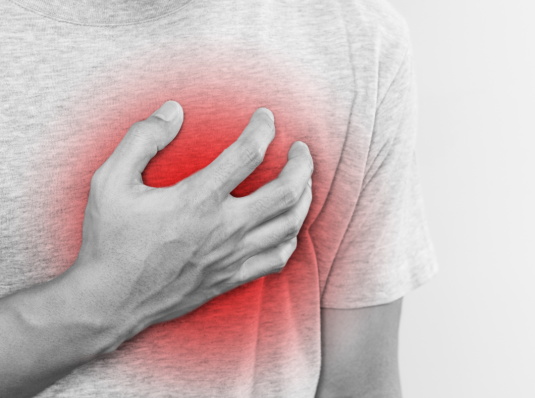Atherosclerotic Cardiovascular Disease (ASCVD)

What is ASCVD?
Atherosclerotic cardiovascular disease (ASCVD) is a condition caused by the buildup of fatty deposits (plaque) inside the arteries. This buildup narrows or blocks blood flow, which can lead to serious events such as heart attack, stroke, or peripheral artery disease. ASCVD develops over many years and is influenced by both lifestyle and genetic risk factors.
Symptoms of ASCVD May Include:
- Chest pain or discomfort (angina)
- Shortness of breath
- Weakness, dizziness, or fatigue
- Pain, numbness, or weakness in the legs or arms (from reduced circulation)
- Heart attack or stroke in advanced stages
Facts About ASCVD
- ASCVD is the leading cause of death worldwide.
- In the U.S., more than 18 million adults are affected by coronary artery disease, a common form of ASCVD.
- By 2035, nearly 45% of Americans are projected to have some form of cardiovascular disease, including ASCVD.
Who is at Risk for ASCVD?
- Genetics: Family history of early heart disease.
- Age: Risk increases significantly after age 45 in men and age 55 in women.
- Sex: Men are at higher risk earlier in life; risk rises for women after menopause.
- Race or Ethnicity: Certain groups, including Black and South Asian populations, have higher rates of ASCVD.
- Other Risk Factors: High cholesterol, high blood pressure, diabetes, obesity, smoking, poor diet, and physical inactivity all raise ASCVD risk.
Diagnosis & Management
ASCVD is diagnosed through physical exams, blood tests, imaging (such as CT scans or ultrasounds), and cardiac stress testing. Early detection is key to preventing major cardiovascular events.
Treatment Options for ASCVD:
Medical and Pharmaceutical Treatments
- Medications: Statins, cholesterol-lowering therapies, blood pressure medications, antiplatelet drugs, and newer biologic therapies.
Lifestyle Interventions
- Dietary Changes: Following a heart-healthy diet low in saturated fat, trans fat, and sodium.
- Physical Activity: Regular exercise to improve cardiovascular health.
- Smoking Cessation: Quitting smoking significantly reduces ASCVD risk.
- Weight Management: Achieving and maintaining a healthy weight to reduce strain on the cardiovascular system.
Have You Been Diagnosed With ASCVD?
At Clinical Investigation Specialists, Inc. (CIS Research), our mission is to advance care for adults with cardiovascular conditions through clinical research. You may be eligible to join a clinical trial investigating new treatment options for ASCVD.
Click here to view our currently enrolling studies.
Resources
CIS does not provide medical advice, diagnosis or treatment. The content provided is for informational purposes only.
Back To Health Education